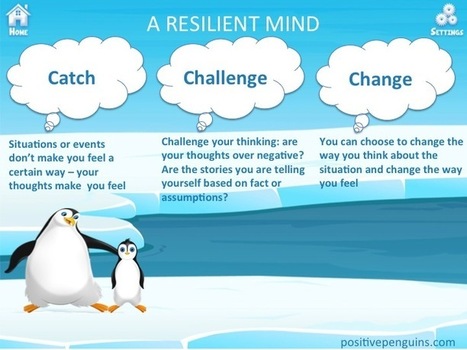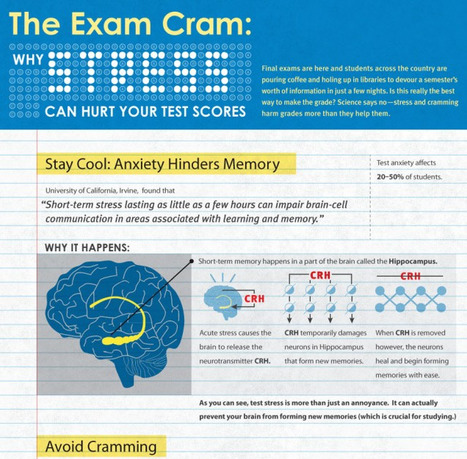"Do you foster an anxious mindset or a resilient mindset in your children or students? The USA is currently the number 1 most anxious country in the world with 27% of the population living with anxiety and depression. In Australia 20% of the population experience a mental illness in any year. In the UK 1 in 4 people will experience some kind of mental health problem in the course of a year and about 10% of children have a mental health problem at any one time."
Research and publish the best content.
Get Started for FREE
Sign up with Facebook Sign up with X
I don't have a Facebook or a X account
Already have an account: Login
Tech tools that assist all students to be independent learners & teachers to become better teachers
Curated by
Beth Dichter
 Your new post is loading... Your new post is loading...
 Your new post is loading... Your new post is loading...
|

Jennifer Lynn's curator insight,
January 11, 2016 6:18 AM
Math anxiety is a serious problem that is noticed among many children now-a-days. This problem can lead to issues like losing self-worth and affecting the values of relationships among friends and family. So, you need to take care of your kids' mental and emotional health. Here are some of the tips that will help you to handle such anxiety in a better manner: http://bit.ly/22V4Q23 |













This is a really interesting post, in the way that it not only informs you about anxiety, but also shows ways to cope.
The 'Catch, challenge, change' stratergy has been created to help children and young adults relistically-
think about their thoughts-
"What am I worrying about?"
Challenge your thoughts-
"Is this definately going to happen?"
"What will happen if I do do it?"
And change thoughts-
"What can I do to make myself feel less anxoius? Talk to someone?"
I believe that once you know about certain disorders, they become less scary. Helping children and young adults learn and understand anxiety, even if they dont experience anxiety themselves, is an important step to teaching kids to understand themselves and people around them.
This is a great resource for helping students build resilience, especially those who have previously experienced trauma. Taking the time to show them how they can think about and handle what happens to them in a more positive way can be life changing in children. This could be integrated into any subject matter; it doesn't need to be limited to the school counselor; in fact, doing so would be a disservice. As I future school leader it is my goal to ensure that students are receiving as well-rounded of an education as possible--and not just academically-speaking. We should be addressing the whole person, and that includes helping them be socially, emotionally, and mentally successful as well.